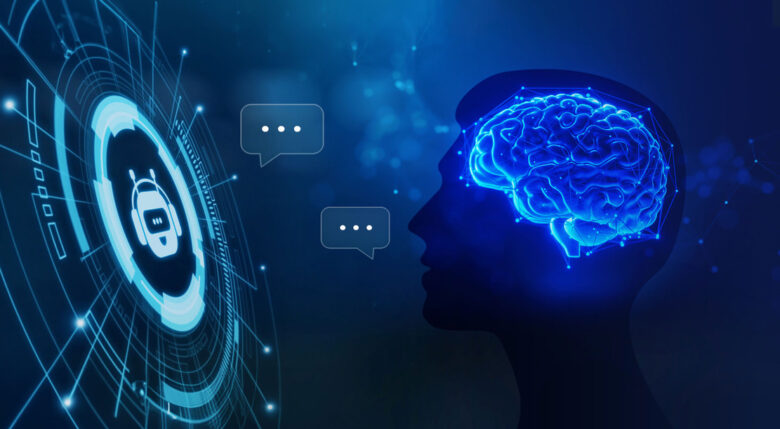As mental health awareness grows, artificial intelligence (AI) is increasingly being integrated into mental health care. Rising issues such as stress, anxiety, hopelessness, and burnout are driving individuals and clinicians to seek more convenient, effective, and personalized treatments. AI holds enormous potential in this area. AI-based chatbots, diagnostic tools, and emotion detection technologies for mental health care are changing the way people receive psychological care.
These technologies reach people who do not have access to professional care and provide continuous support in a digital environment. AI applications in mental health care extend the reach of human therapists and provide immediate treatment when needed. This growing field creates new opportunities to create a more supportive and inclusive mental health ecosystem.
AI-Based Chatbots and Virtual Therapists:
With the advent of AI-based chatbots and virtual therapists, mental health support has changed significantly. These digital agents simulate therapeutic interactions to help struggling users with emotional support and cognitive behavioral approaches. Woebot, Wysa, and Youper can help alleviate daily stress, anxiety, and mood disorders. These platforms use natural language processing (NLP) and a conversational tone to keep journals, perform breathing exercises, and provide mindfulness prompts. While they can’t diagnose or provide comprehensive therapeutic care like a qualified professional, they serve as an urgent first port of call for people who are afraid or unable to seek traditional treatment. AI makes mental health care more convenient, discreet, and available 24/7.
Machine Learning Insights for Mental Health:
Pattern recognition is the power of AI, allowing researchers to analyze mental health data that people miss. Machine learning algorithms can detect mental health issues based on voice, facial expressions, typing, and social media activity. These systems can track changes over time, provide personalized mental health advice, and help people become more self-aware. Apps can identify an increase in negative language or social withdrawal and offer counseling or daily adjustments. Personalized therapy enables proactive rather than reactive treatment, preventing mental health issues from worsening. AI makes mental health interventions more effective and relevant through personalized and data-driven support.
Expanding Access to Care and Reducing Barriers:
Rural and vulnerable populations have traditionally struggled to access mental health care. AI reduces these barriers by providing on-demand and cost-effective support. Unlike traditional treatments that require doctor visits, transportation, and significant fees, AI-powered apps are accessible via smartphones and can be scaled at a low cost per user. They are particularly useful in areas where mental health specialists are scarce. AI-powered platforms can adapt to multiple languages and cultures, making care more inclusive. Digital tools provide anonymity and privacy, encouraging open communication between people who face stigma or criticism. AI has the potential to democratize mental health care and help millions of people as it evolves.
AI for Early Detection and Risk Assessment:
Early detection and risk assessment are other achievements of AI in mental health. AI systems can detect mental health issues early by analyzing medical history, digital behavior, and self-reported symptoms. Researchers are using AI to predict suicide, depression, and post-traumatic stress disorder (PTSD) based on social media use or health data from wearables. Early intervention can save lives and reduce the long-term consequences of mental illness. Hospitals and clinics are using AI-based admission assessments to prioritize at-risk cases and better allocate resources. Instead of replacing diagnosis, these predictive models enhance clinical judgement and guide attention to the most critical areas.
Human Factors and Ethics:
While AI offers many benefits in mental health, it also poses ethical dilemmas. It is crucial to pay attention to data privacy, consent, and the emotional boundaries of AI. Users may not understand how their data is being used, and sensitive information can be mismanaged or leaked. While AI can simulate empathy, it cannot match the nuanced knowledge and deep emotional connection of a trained therapist. Striking the right balance between the speed, scalability, and efficiency of AI and the empathy, ethics, and human oversight of mental health care is not simple. Developers, regulators, and mental health professionals must work together to create clear regulations, protect users, and ensure that AI is used ethically in this sensitive field.
The Future of AI and Mental Health:
AI has a bright future in mental health. As technology advances, AI systems will become more emotionally intelligent and culturally adaptive, improving user experience and engagement. Wearables, voice assistants, and augmented reality can make AI tools for mental health more immersive and responsive. AI-assisted treatments could become the standard, freeing up professionals and improving treatment outcomes. Using AI in large-scale mental health research could also influence government policy and improve global health. It is crucial to drive innovation with empathy, inclusivity, and a desire to improve lives. When used correctly, AI can transform mental health care and make it more accessible.
Conclusion:
AI is rapidly improving mental healthcare, making it more accessible, personalized, and proactive. From virtual chatbots that provide emotional support to predictive technologies that detect early warning signs, AI is helping people manage their health. Technology is only part of the solution. AI must be carefully integrated into the healthcare system, guided by ethics and values, to truly make a difference. To improve mental health support, human empathy and computer intelligence must work together. Through this synergy, we can create a more responsive, inclusive, and successful mental health environment. If nurtured properly, AI has enormous potential to help the world achieve emotional resilience and mental health.
FAQs:
1. Can AI completely replace therapists in mental health?
AI cannot replace human therapists. It can provide initial support and data-driven insights for mental health, but human empathy, understanding, and judgment are irreplaceable.
2. Can AI technologies accurately detect mental disorders?
AI can reliably detect behavioral patterns and potential problems. It cannot replace professional diagnoses but should be used as a supplement.
3. Are AI mental health apps safe?
Most reliable AI mental health apps use secure systems, but users should carefully read privacy and usage policies. Data protection is crucial.
4. Are AI mental health services suitable for everyone?
Many people benefit from AI technology, but others with serious mental health issues may need personalized, intensive treatment from a certified specialist.
5. How will AI change mental health care?
AI can improve early detection, tailor treatment plans, increase access, and automate therapists’ daily tasks, making the healthcare system more efficient and inclusive.




